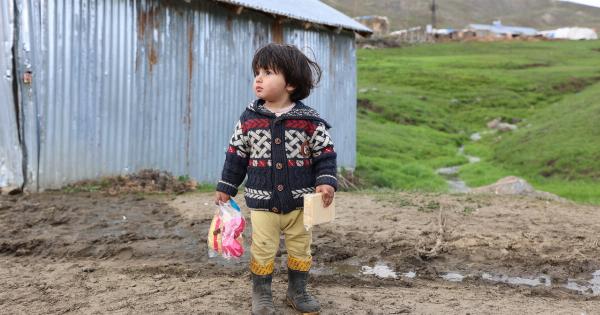Prenatal stress refers to the challenges and difficulties experienced by a pregnant woman during the gestational period.
This can include various physical, emotional, or psychological stressors that may have a profound impact on both the mother and the developing fetus. Extensive research has been conducted to understand the potential long-term consequences of prenatal stress on the child’s health and well-being, including its influence on personality traits.
1. Understanding Prenatal Stress
Prenatal stress can stem from various sources such as financial worries, relationship problems, work-related stress, or even traumatic events experienced by the expectant mother.
These stressors can trigger the release of stress hormones, affecting the developing fetus through the placenta. The fetus does not have a mature stress response system, making it vulnerable to the effects of maternal stress.
2. Assessing Personality Traits
Personality traits can be defined as stable patterns of behavior, emotions, and thought processes that characterize an individual. They play a significant role in shaping how individuals interact with the world and influence their overall well-being.
The study of personality traits involves identifying and measuring various dimensions, such as extraversion, neuroticism, openness to experience, agreeableness, and conscientiousness.
3. The Impact of Prenatal Stress on Personality Development
Research suggests that prenatal stress can influence the development of a child’s personality traits.
Exposure to high levels of stress hormones in the womb can lead to alterations in brain development, which may have long-lasting effects on behavior and personality. Children exposed to prenatal stress have been found to be more prone to anxiety, depression, aggression, and attention deficit hyperactivity disorder (ADHD) later in life.
4. Epigenetic Mechanisms and Personality
Epigenetic mechanisms refer to changes in gene expression without alterations to the underlying DNA sequence. Prenatal stress can lead to these epigenetic modifications that impact the regulation of genes associated with personality traits.
These changes may persist into adulthood, affecting how individuals respond to stress, form relationships, and cope with challenges.
5. Maternal Mental Health and the Developing Child
Maternal mental health plays a vital role in shaping the prenatal environment and influencing the child’s personality traits.
Maternal stress, anxiety, or depression can impact the intrauterine environment, exposing the developing fetus to elevated levels of stress hormones. This hormonal exposure can influence the programming of the fetal stress response system and contribute to the development of personality traits.
6. Protective Factors and Interventions
While prenatal stress can have negative effects on a child’s personality traits, certain protective factors can mitigate these risks.
Providing support to expectant mothers, teaching stress management techniques, and promoting healthy lifestyle habits can help reduce the impact of prenatal stress. Additionally, interventions such as prenatal yoga, mindfulness-based programs, and cognitive-behavioral therapy have shown promising results in reducing stress levels during pregnancy.
7. Longitudinal Studies and Future Directions
Longitudinal studies tracking children from prenatal stages to adulthood are needed to further understand the link between prenatal stress and personality traits.
These studies can provide valuable insights into the specific mechanisms through which prenatal stress influences personality development. Additionally, exploring interventions targeted at reducing prenatal stress can pave the way for preventive strategies aimed at promoting positive personality traits in children.
8. The Role of Supportive Environments
Creating supportive environments for pregnant women can significantly impact both maternal and child well-being.
Enhancing access to prenatal healthcare, providing counseling services, and reducing social stressors can help alleviate prenatal stress and promote healthier personality development in children.
9. Parenting Strategies for Children with Prenatal Stress
Understanding a child’s unique personality traits and needs can guide parents in adopting effective strategies for nurturing their development.
Building secure and nurturing relationships, fostering emotional intelligence, and promoting resilience can help children with prenatal stress thrive despite the challenges they may face.
10. Conclusion
Prenatal stress can have a lasting influence on a child’s personality traits.
The intrauterine environment, influenced by maternal stress levels and mental health, plays a crucial role in shaping the developing fetus and its future behavioral patterns. By understanding the potential impact of prenatal stress and implementing appropriate interventions and support systems, we can create a healthier and more nurturing environment for both expectant mothers and their children.





























